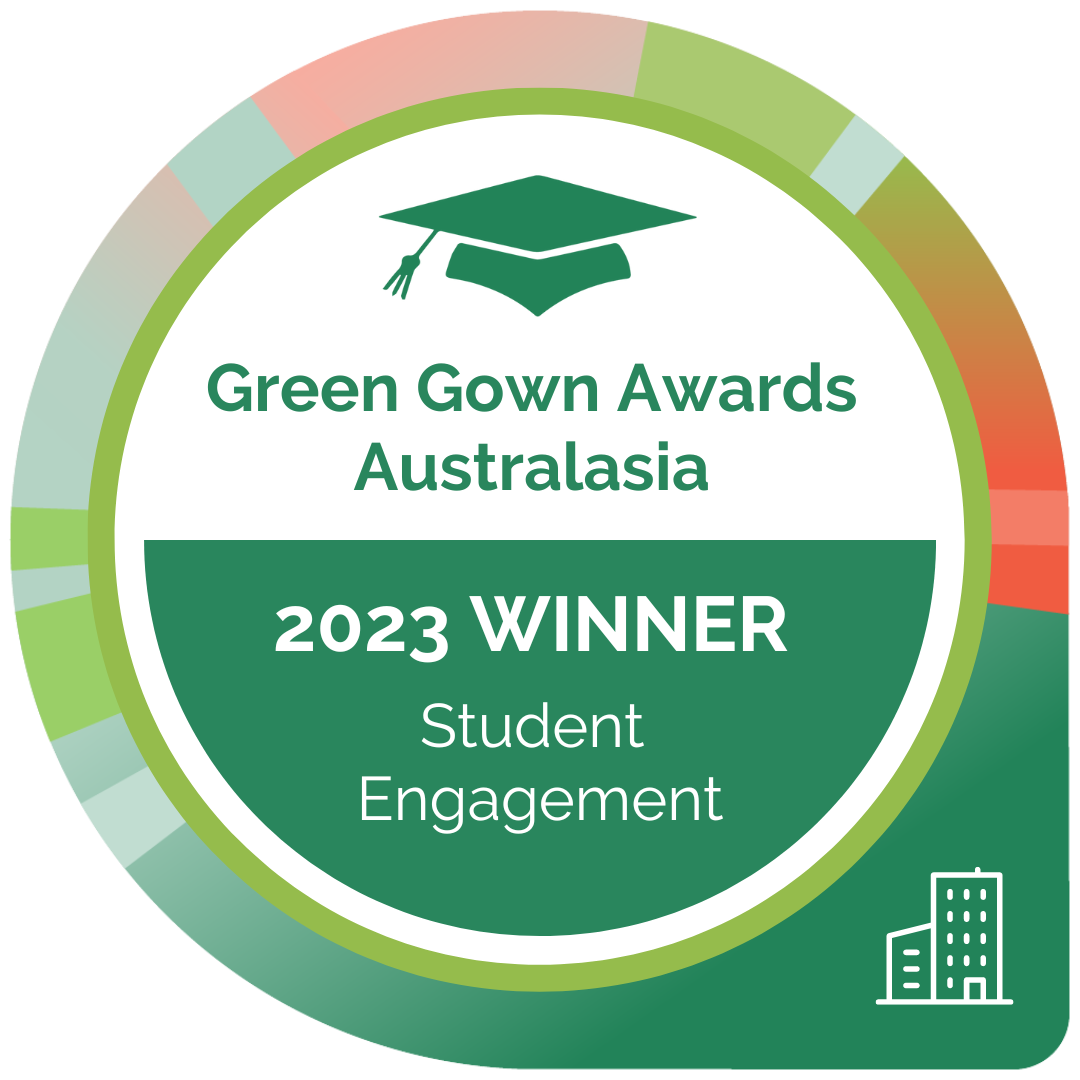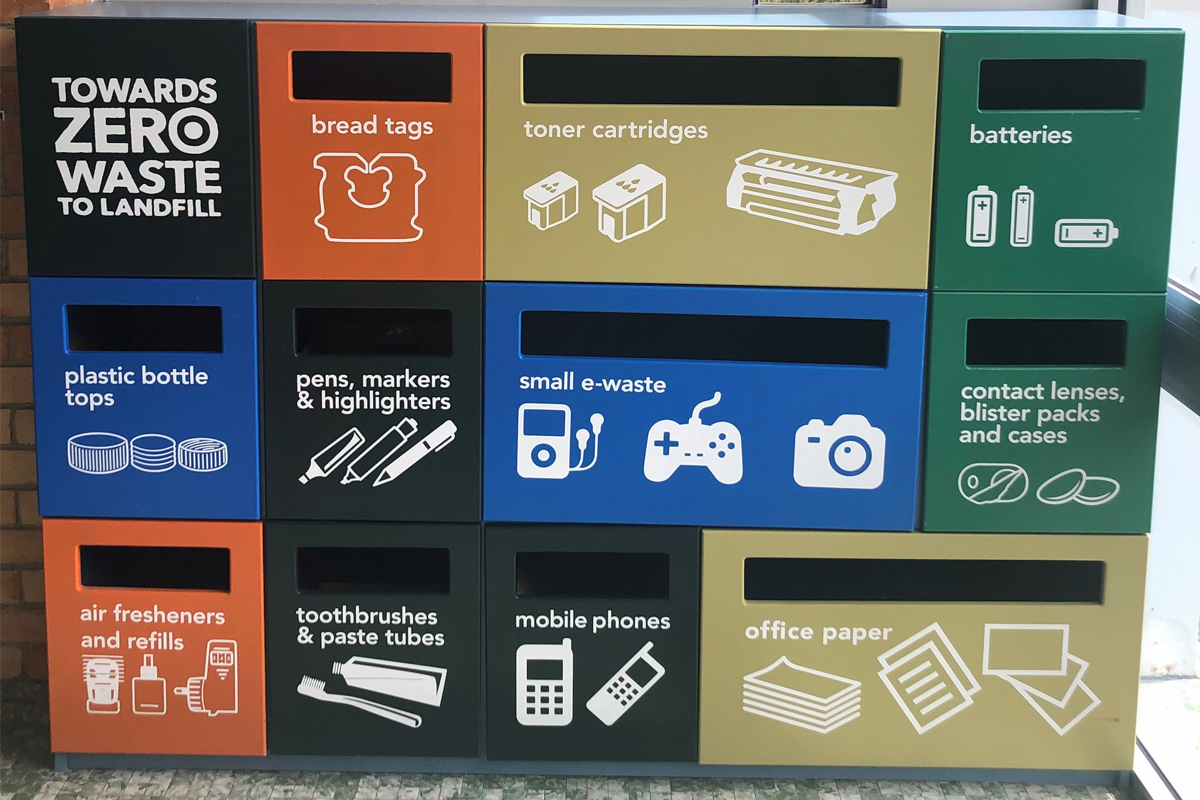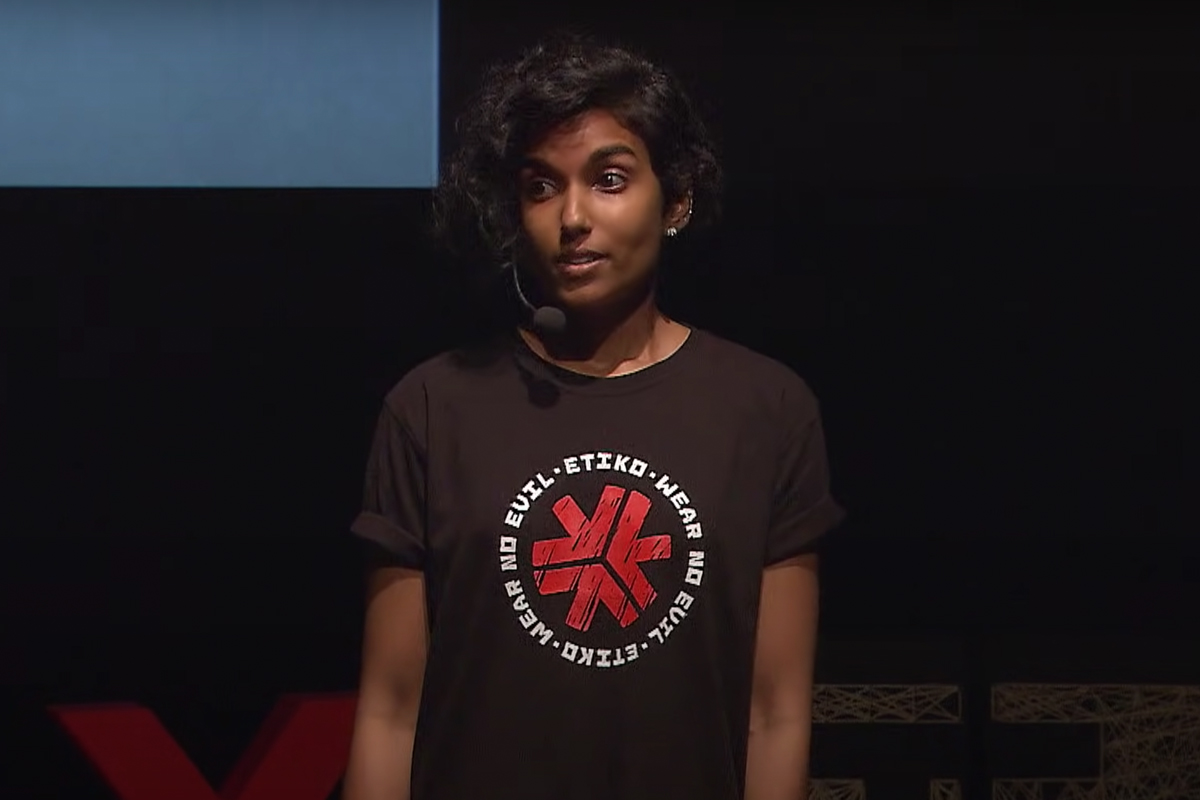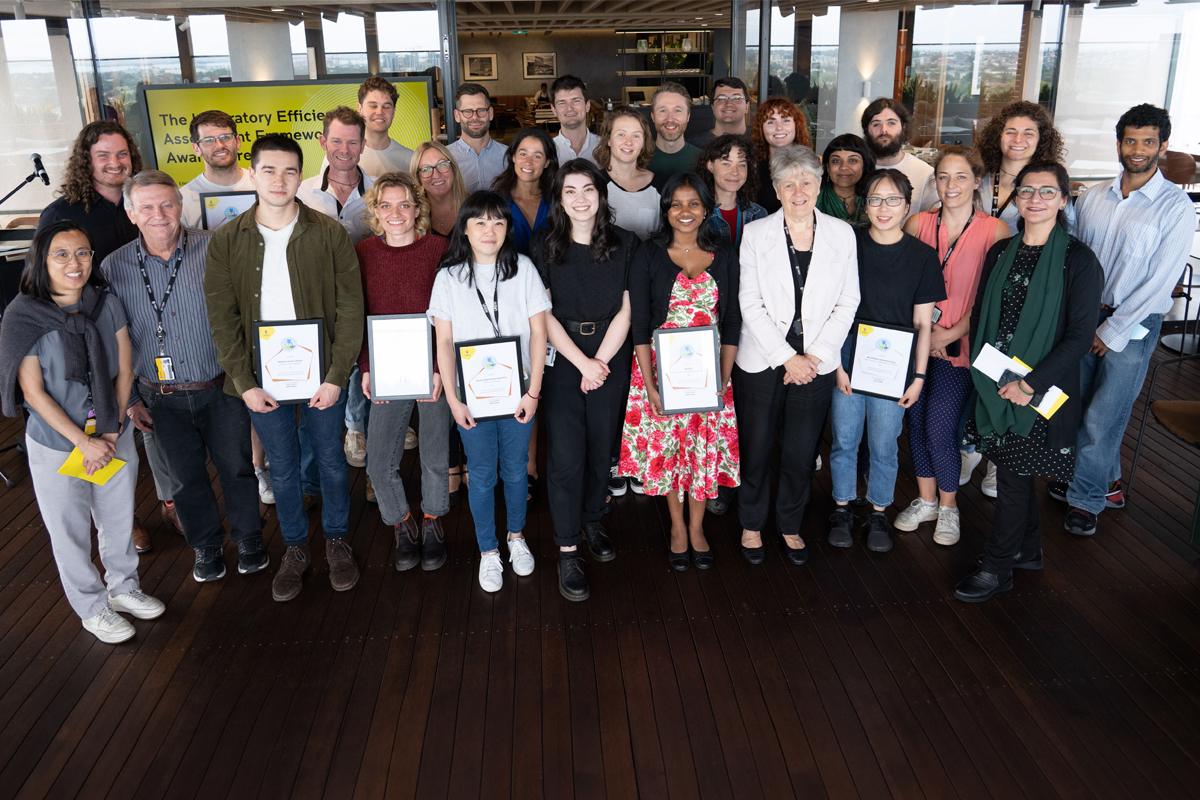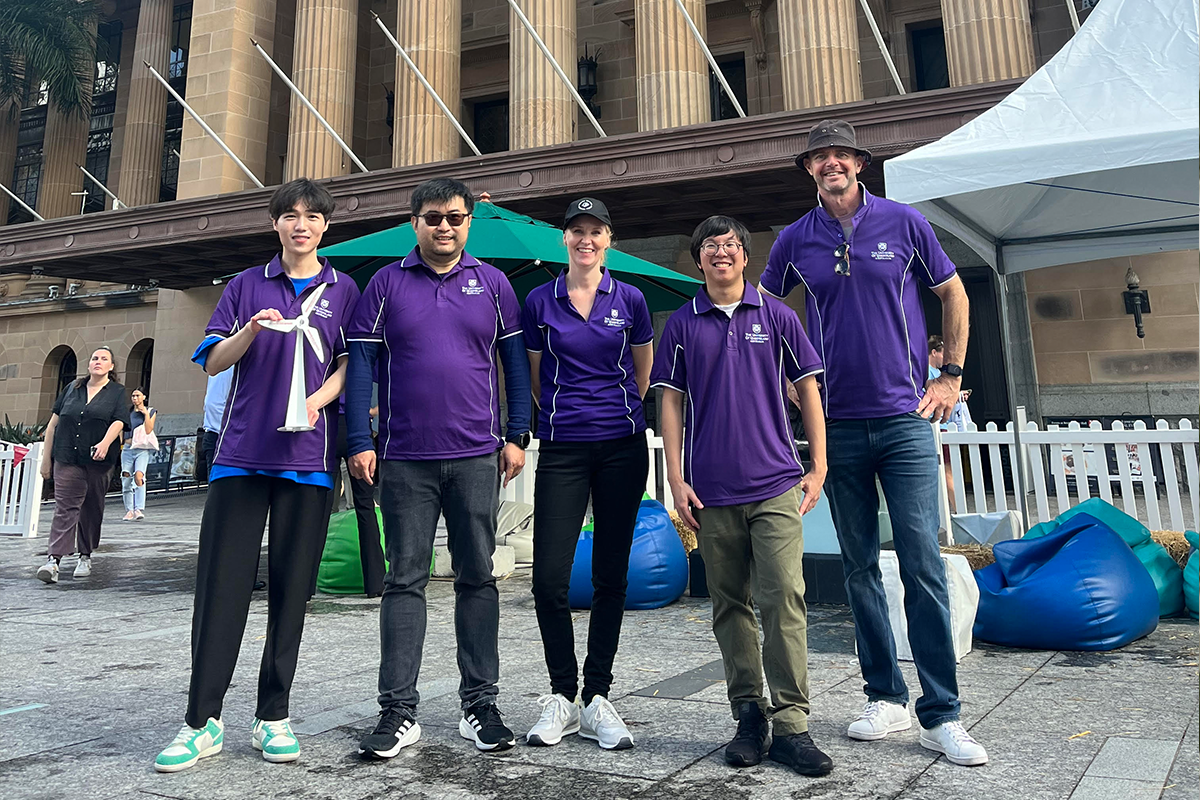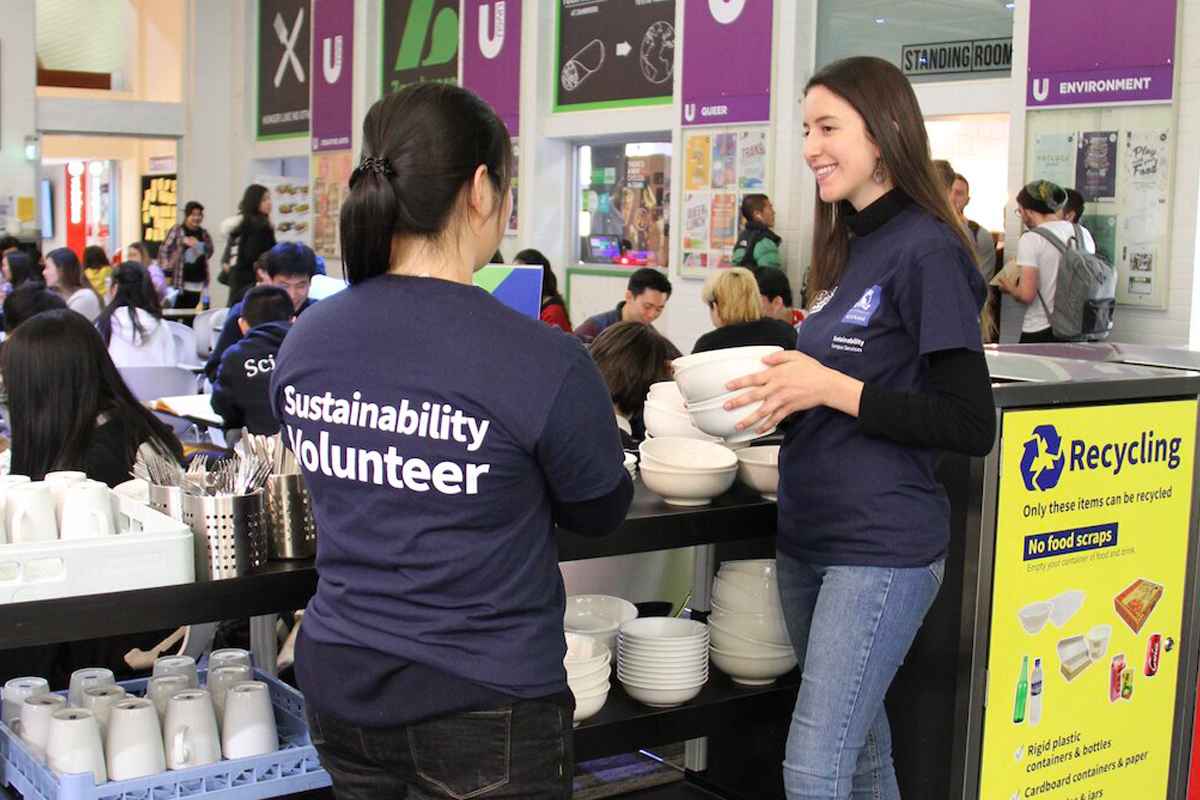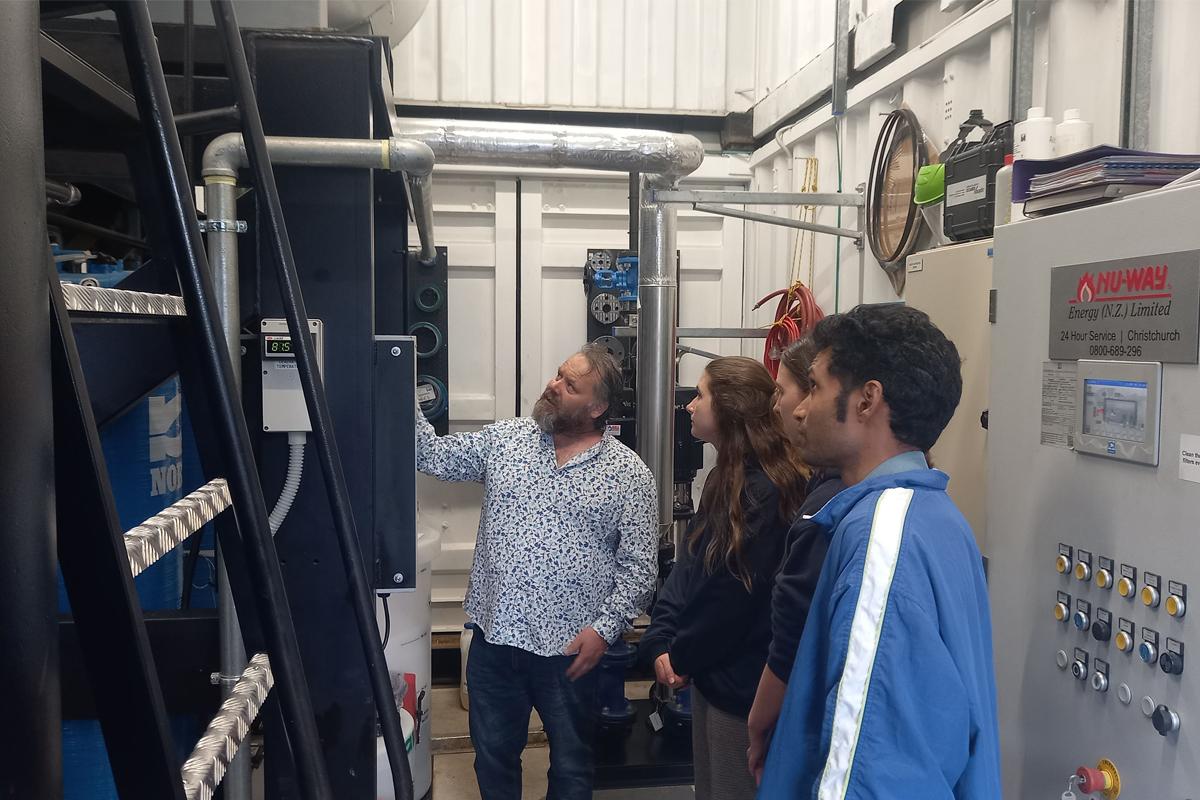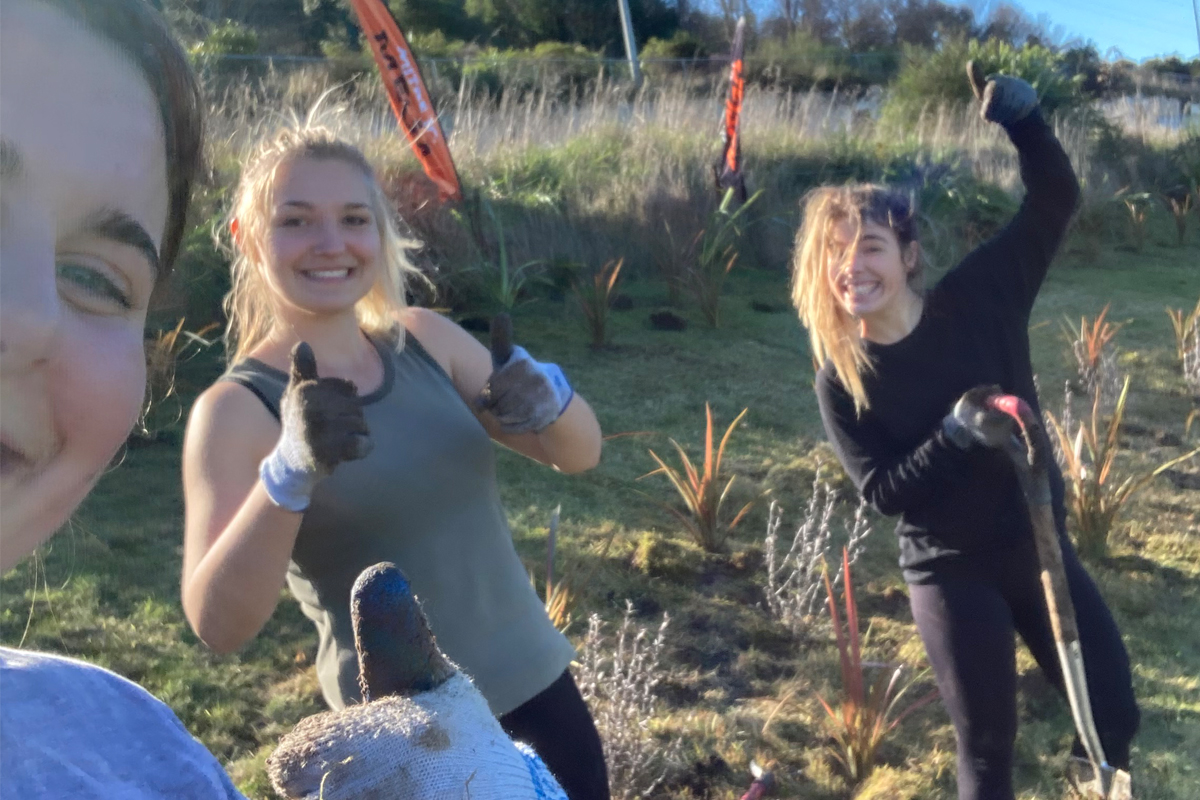Student Engagement/Winners category
The goal of the initiative is to establish a community kitchen garden program at The Australian National University (ANU) to enable students to improve their food literacy and security, mental and physical health outcomes and to learn about environmentally positive ways of producing and preparing fresh food including through regenerative agricultural and circular economy practices, promotion of biodiversity, community gardening, reducing food waste and making economical and healthy meals with seasonal produce.
Objective 1
Build social connectedness in our community by providing opportunity, resources and support for program participants to engage with each other through nature and community-based activities which develop skills, confidence, mutual responsibility and self-reliance to support their mental and physical health and wellbeing, as well as facilitating connection to broader support services.
We achieve this through:
- Supporting students to build connections at university through working cooperatively in the kitchen and gardens; Involving students in planning and designing Kitchen Garden activities and garden/ harvest/ cooking plans; Employing students as Student Leaders to lead program activities and work with student volunteers to design and deliver an engaging and relevant program; encouraging students and staff to volunteer in the program, outside of group sessions, taking on responsibility for various tasks including caring for chickens, watering and weeding and growing plants for the garden. Staff, including student casuals, are trained to support students to make contact with appropriate university support (such as Student Safety and Wellbeing team) and in the Canberra community.
- Cross promotion of the Kitchen Garden Program, ANU Community Connect Food Pantry, financial support, mental health and pastoral care services to our ANU community through O Week market days, collaboration with the Stephanie Alexander Kitchen Garden Foundation to develop the program, University Open Days, collaboration with ANU based student groups like Vinnies on Campus and other activations on campus.
- Building a network of kitchen gardens, kitchen spaces and communal spaces on the ANU campus, which provide a place for students and staff to meet and connect.
- Enabling ANU student participants and volunteers to build confidence in gardening (growing food) and increase connectedness with the local community through weekly workshops and events to bring the community together.
- Building partnerships and collaborating with internal stakeholders such as; ANU Below Zero and Facilities and Services to include kitchen garden produce in catered events on campus, and to establish a worm farm on campus next to The Plot Garden in Semester 2, 2023 accompanied by workshops on composting and worm farming starting in Semester 1. 2024 and a Worm Guardians network; and the ANU, Landscape and Conservation team who helped with infrastructure like construction of kitchen garden beds, provide campus-produced compost and support the operations of the Kitchen Gardens.
- Collaborating with external stakeholders and local environmental and sustainable partners such as ACT Health, Stephanie Alexander Kitchen Garden Program, Seed Savers, Canberra Environment Centre, ANU Food Co-op, ACT for bee’s, Capital Scraps, Food Waste ACT and Canberra City Farm to deliver bespoke education workshops, events such as the Kitchen Garden Community Day in semester 1, 2023.
- Developing resources tailored to suit the needs of tertiary students.
Objective 2
Provide the resources and opportunity for students to be active and empowered in improving their food literacy, food security and access to fresh, organic, locally grown food both on campus and at home.
We achieve this through:
- Conducting weekly sessions with students and volunteers, sharing knowledge at gardening and cooking workshops and events and sharing communal meals together based on harvest from the community gardens and basic, affordable food staples.
- Encouraging students who are experiencing food insecurity to access support and food relief from the ACC Community Pantry.
- Collaborating with the ANU Community Connect Food Pantry to develop and share recipes which are simple, affordable and don’t require special equipment or expensive ingredients.
- Encouraging participating students to take home freshly harvested fruit, herbs and vegetables from the gardens to supplement their regular fresh food consumption.
- Encouraging students to create and share their own recipes and tips for preparing fresh, healthy, affordable meals, and to contribute recipes from their home cultures. Facilitate weekly gardening and cooking workshops during semester for ANU students and student volunteers, using produce from the kitchen garden.
- Deliver gardening and cooking workshops for ANU students and student volunteers, to teach them how to grow their own vegetables, preserve food, reduce waste and be more aware of a circular economy and active citizenship through community gardening.
- Run an annual Kitchen Garden Community Day to showcase the kitchen gardens, recognise and celebrate student and community partner contributions and share in the harvest from the garden and engage in environmental and sustainable activities.
Objective 3
Improve the financial and food security of ANU students, through their engagement with the ANU Kitchen Garden Program.
We achieve this through:
- Practical education for ANU students and student volunteers about the financial benefits of cooking their own food and how to access fresh, affordable food; and tips on how to use fresh produce more efficiently to get more value and waste less food.
- Collaborate with the ANU Community Connect Food pantry to create awareness of food and financial supports on an off campus through events, campaigns and pop-up activities focussed on food and financial supports.
- Students who engage with the gardening working bee’s and cooking workshops receive a free meal at Kitchen Garden sessions and often also get to take fresh produce home from the garden to cook with.
- Online cooking competitions using produce from the kitchen garden and food pantry.
- Creating connections for students and providing training to volunteers has led to some students successfully gaining casual employment at the university within our team and other student facing teams.
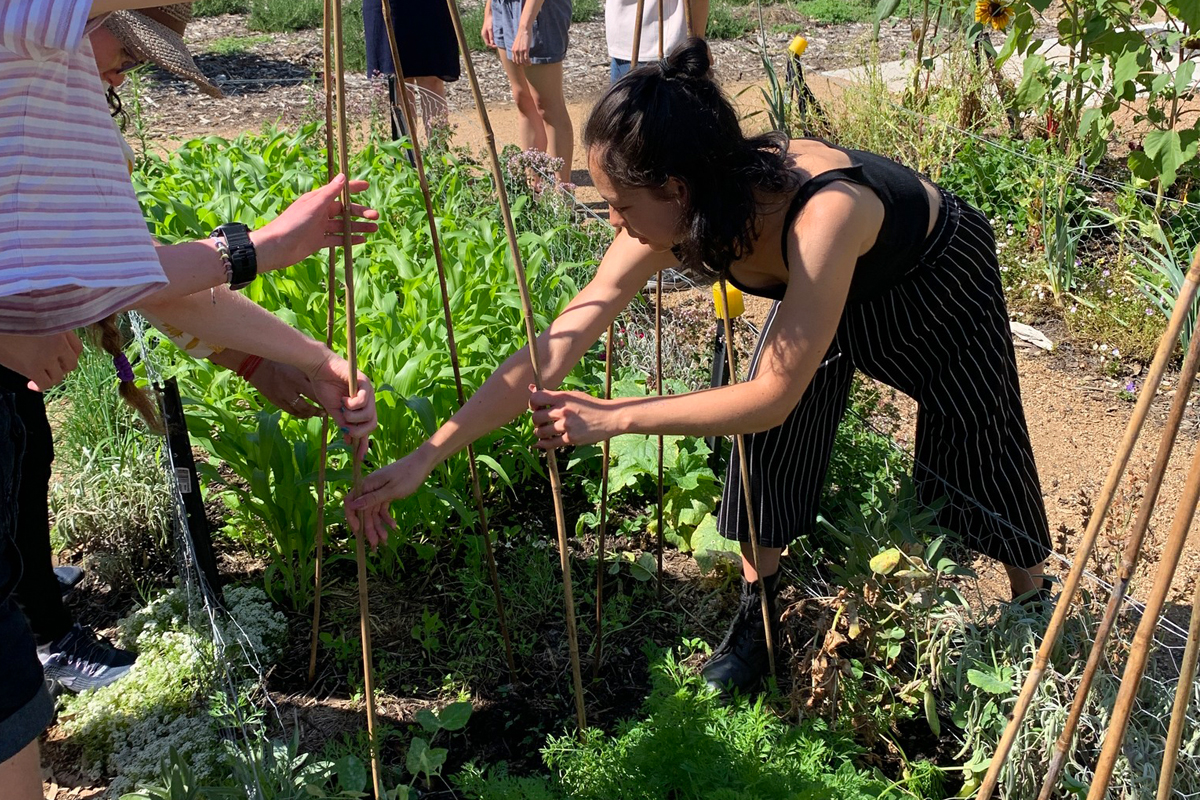
Environmental and social benefits
The Kitchen Garden program offers opportunities for ANU students and staff to:
- Work creatively and cooperatively, sharing skills, knowledge and experience and learning together;
- Build confidence to nurture and grow food and to prepare fresh, healthy, seasonal meals for good health;
- Grow, buy and use fresh produce in a way that helps to reduce food waste and provide more value for money;
- Create connections and networks with students and staff, in a safe, respective, sustainable and inclusive space – the Kitchen Garden community as a sustainable city component;
- Develop and build on skills and capabilities beyond academic learning;
- Engage in volunteer work and contribute to the local community and enabling citizenship and a shared sense of purpose with others while promoting sustainable consumption practices.
The program has also enabled participants to develop:
- Healthier eating habits and improved food literacy, understanding of seasonal eating and reducing food waste, and practical cooking skills;
- Willingness and confidence to try new and healthy foods;
- Increased participation, engagement and attendance;
- Improved self-esteem and confidence;
- Increased opportunities to learn through doing;
- Advancement in different areas e.g., employment following experience gained through volunteering;
- Further developed life skills e.g., growing food, buying and using fresh produce, cooking skills;
- Improved social skills and communication with peers and staff at the university;
Leadership and engagement
The Thrive Kitchen Garden Program is the first of its kind to be established in the Australian tertiary sector. The program is designed as an engaging, accessible and inclusive integration of hands-on skill and confidence building activities, social connection, appreciation of nature and experiential learning about a range of topics from biodiversity promotion to food waste regeneration, seed saving to soup making.
As an open, free extracurricular activity, the program is a partnership between the university – providing experienced, professional staff, facilities and resources to offer a program to student and staff volunteers – and students. The program delivers a unique opportunity for people from diverse academic backgrounds, culture and language backgrounds, socio-economic circumstances and experience of cooking and gardening to come together as a community around the universal theme of food.
The team run regular weekly sessions involving gardening, harvesting, preparing food and shared meals allowing students to work together cooperatively and share the fruits of their labours while building personal and community resiliency and foregrounding environmentally beneficial stewardship of nature, food waste reduction and local, organic, seasonal food choices. The program is situated within the broader environmental and food movements and the local ACT food economy, collaborating with organisations such as the The Canberra Environment Centre, Southern Harvest Farmers Association, The Food Coop Shop & Cafe, ACT for Bees and more.
Student leaders, volunteers and participants are all encouraged to develop projects within the Kitchen Garden Program and to contribute towards or lead sessions benefiting the wider KGP community. In Semester 2, 2023, a new set of collaborative planning and design tools is being designed by a Student Leader in collaboration with student volunteers.
Volunteers are engaged in the program through various roles and activities and are provided with training, mentoring and support. In Semester 2, 2023, the Volunteer Program is being expanded to include the future Worms Against Waste program and to create more opportunities for students to design, develop and lead workshops and sessions.
Significance to the sector
The Kitchen Garden program is the first of its kind to be established in the Australian tertiary sector. The program has been set up in collaboration with industry experts such as the Stephanie Alexander Kitchen Garden Foundation (SAKGF) to guide the program to be delivered to a targeted audience, ANU students. The program has been funded through ACT Health, commencing in 2021 and has been delivered over the course of three years. The program is delivered through collaboration within the sector but also with students, staff and volunteers on campus.
The program is situated within the broader environmental and food movements and the local ACT food economy, collaborating with organisations such as the Southern Harvest Farmers Association, The Food Coop Shop & Cafe, ACT for Bees and more. After the lockdowns related to the COVID-19 pandemic, there was a need to have a holistic program where participants could come together outdoors without social distancing restrictions, make connections, learn new skills and understand food security and principles of circular economy. The program has ensured that there is buy-in from the university and is now led by student leaders in collaboration with the Kitchen Garden Officer. A network of students participating in the program and volunteers come together each week and garden, cook and eat together to make a network of Kitchen Garden enthusiasts.
Wider societal impact
A program like the Kitchen Garden can build students confidence and capacity to become active citizens in their local community and develop that mindset to take into their future lives and careers and the communities they are a part of both nationally and internationally.
The Kitchen Garden program is much more than an educational, skills-based program it is cultivating a community and interconnectedness mindset and approach to living more sustainably and with purpose and belonging. The value of having active, engaged, and healthy citizens in society living sustainably has the potential to impact on many facets of society positively. We have seen the impact that this program has been able to have firsthand, specifically in educating and engaging students in growing, harvesting, and learning and sharing skills to prepare and create healthy, nutritional meals together.
The program also has been able to educate and lead by example in reducing food waste, living more in harmony with the environment through regenerative gardening practices, composting, not using harmful pesticides but natural ways to control pests and grow organic not genetically modified food. Students also build confidence in a supported environment and learn social skills, responsibility through their respective roles and nurturing and caring for flora and fauna through caring for the gardens two chickens.
Learner/Graduate employer impact
The benefits to graduate employers from students engaging in the Kitchen Garden program are profound, not only have staff seen students’ confidence and capacity grow over time but also their ability to communicate, work collaboratively to achieve goals as a team, recognise and value peers and staff lived experiences and the power of diverse groups of people working together collectively.
I think that experiential programs like ours challenge students to question the way we do things (to engage in new and unfamiliar environments and learn new skills unrelated to their academic studies), to learn the value of sharing, relationship building, develop tangible and transferrable skills such as adaptability, following through on plans, taking responsibility for their role to support the team to thrive.
The team running the Kitchen Garden program have seen the impact on the students engaged through their behaviour changes and attitudes towards where our food comes from, personal responsibility for living more sustainably and how their actions influence others and help create collective change and positive outcomes in their community. These skills and attributes are just some of the ways in which our graduates who have engaged in the Kitchen Garden program will add value and be beneficial to any future workplace.
Top 3 learnings
Category finalists
Climate Action/Winners
Climate Action/Winners
Benefitting Society/Winners
Benefitting Society/Winners
Sustainability Champion – Student/Winners
Sustainability Champion – Student/Winners
Creating Impact/Winners
Creating Impact/Winners
Creating Impact/Winners
Creating Impact/Winners
Leading the Circular Economy/Winners
Leading the Circular Economy/Winners
Sustainability Champion – Student/Winners
Sustainability Champion – Student/Winners
Creating Impact/Winners
Creating Impact/Winners
Diversity, Equity & Inclusion in Sustainability/Winners
Diversity, Equity & Inclusion in Sustainability/Winners
Next Generation Learning & Skills/Winners
Next Generation Learning & Skills/Winners
Sustainability Institution of the Year/Winners
Sustainability Institution of the Year/Winners
Leading the Circular Economy/Winners
Leading the Circular Economy/Winners
Next Generation Learning & Skills/Winners
Next Generation Learning & Skills/Winners
Sustainability Champion – Staff/Winners
Sustainability Champion – Staff/Winners
Sustainability Champion – Student/Winners
Sustainability Champion – Student/Winners
Next Generation Learning & Skills/Winners
Next Generation Learning & Skills/Winners
Sustainability Champion – Staff/Winners
Sustainability Champion – Staff/Winners
Student Engagement
Student Engagement
Sustainability Champion – Staff/Winners
Sustainability Champion – Staff/Winners
Past winners
Benefitting Society/Winners
Benefitting Society/Winners
Diversity, Equity & Inclusion in Sustainability/Winners
Diversity, Equity & Inclusion in Sustainability/Winners
Climate Action/Winners
Climate Action/Winners
Sustainability Institution of the Year/Winners
Sustainability Institution of the Year/Winners
Creating Impact/Winners
Creating Impact/Winners
Creating Impact/Winners
Creating Impact/Winners
Top 3 learnings
Student Engagement/Winners category
The goal of the initiative is to establish a community kitchen garden program at The Australian National University (ANU) to enable students to improve their food literacy and security, mental and physical health outcomes and to learn about environmentally positive ways of producing and preparing fresh food including through regenerative agricultural and circular economy practices, promotion of biodiversity, community gardening, reducing food waste and making economical and healthy meals with seasonal produce.
Objective 1
Build social connectedness in our community by providing opportunity, resources and support for program participants to engage with each other through nature and community-based activities which develop skills, confidence, mutual responsibility and self-reliance to support their mental and physical health and wellbeing, as well as facilitating connection to broader support services.
We achieve this through:
- Supporting students to build connections at university through working cooperatively in the kitchen and gardens; Involving students in planning and designing Kitchen Garden activities and garden/ harvest/ cooking plans; Employing students as Student Leaders to lead program activities and work with student volunteers to design and deliver an engaging and relevant program; encouraging students and staff to volunteer in the program, outside of group sessions, taking on responsibility for various tasks including caring for chickens, watering and weeding and growing plants for the garden. Staff, including student casuals, are trained to support students to make contact with appropriate university support (such as Student Safety and Wellbeing team) and in the Canberra community.
- Cross promotion of the Kitchen Garden Program, ANU Community Connect Food Pantry, financial support, mental health and pastoral care services to our ANU community through O Week market days, collaboration with the Stephanie Alexander Kitchen Garden Foundation to develop the program, University Open Days, collaboration with ANU based student groups like Vinnies on Campus and other activations on campus.
- Building a network of kitchen gardens, kitchen spaces and communal spaces on the ANU campus, which provide a place for students and staff to meet and connect.
- Enabling ANU student participants and volunteers to build confidence in gardening (growing food) and increase connectedness with the local community through weekly workshops and events to bring the community together.
- Building partnerships and collaborating with internal stakeholders such as; ANU Below Zero and Facilities and Services to include kitchen garden produce in catered events on campus, and to establish a worm farm on campus next to The Plot Garden in Semester 2, 2023 accompanied by workshops on composting and worm farming starting in Semester 1. 2024 and a Worm Guardians network; and the ANU, Landscape and Conservation team who helped with infrastructure like construction of kitchen garden beds, provide campus-produced compost and support the operations of the Kitchen Gardens.
- Collaborating with external stakeholders and local environmental and sustainable partners such as ACT Health, Stephanie Alexander Kitchen Garden Program, Seed Savers, Canberra Environment Centre, ANU Food Co-op, ACT for bee’s, Capital Scraps, Food Waste ACT and Canberra City Farm to deliver bespoke education workshops, events such as the Kitchen Garden Community Day in semester 1, 2023.
- Developing resources tailored to suit the needs of tertiary students.
Objective 2
Provide the resources and opportunity for students to be active and empowered in improving their food literacy, food security and access to fresh, organic, locally grown food both on campus and at home.
We achieve this through:
- Conducting weekly sessions with students and volunteers, sharing knowledge at gardening and cooking workshops and events and sharing communal meals together based on harvest from the community gardens and basic, affordable food staples.
- Encouraging students who are experiencing food insecurity to access support and food relief from the ACC Community Pantry.
- Collaborating with the ANU Community Connect Food Pantry to develop and share recipes which are simple, affordable and don’t require special equipment or expensive ingredients.
- Encouraging participating students to take home freshly harvested fruit, herbs and vegetables from the gardens to supplement their regular fresh food consumption.
- Encouraging students to create and share their own recipes and tips for preparing fresh, healthy, affordable meals, and to contribute recipes from their home cultures. Facilitate weekly gardening and cooking workshops during semester for ANU students and student volunteers, using produce from the kitchen garden.
- Deliver gardening and cooking workshops for ANU students and student volunteers, to teach them how to grow their own vegetables, preserve food, reduce waste and be more aware of a circular economy and active citizenship through community gardening.
- Run an annual Kitchen Garden Community Day to showcase the kitchen gardens, recognise and celebrate student and community partner contributions and share in the harvest from the garden and engage in environmental and sustainable activities.
Objective 3
Improve the financial and food security of ANU students, through their engagement with the ANU Kitchen Garden Program.
We achieve this through:
- Practical education for ANU students and student volunteers about the financial benefits of cooking their own food and how to access fresh, affordable food; and tips on how to use fresh produce more efficiently to get more value and waste less food.
- Collaborate with the ANU Community Connect Food pantry to create awareness of food and financial supports on an off campus through events, campaigns and pop-up activities focussed on food and financial supports.
- Students who engage with the gardening working bee’s and cooking workshops receive a free meal at Kitchen Garden sessions and often also get to take fresh produce home from the garden to cook with.
- Online cooking competitions using produce from the kitchen garden and food pantry.
- Creating connections for students and providing training to volunteers has led to some students successfully gaining casual employment at the university within our team and other student facing teams.

Environmental and social benefits
The Kitchen Garden program offers opportunities for ANU students and staff to:
- Work creatively and cooperatively, sharing skills, knowledge and experience and learning together;
- Build confidence to nurture and grow food and to prepare fresh, healthy, seasonal meals for good health;
- Grow, buy and use fresh produce in a way that helps to reduce food waste and provide more value for money;
- Create connections and networks with students and staff, in a safe, respective, sustainable and inclusive space – the Kitchen Garden community as a sustainable city component;
- Develop and build on skills and capabilities beyond academic learning;
- Engage in volunteer work and contribute to the local community and enabling citizenship and a shared sense of purpose with others while promoting sustainable consumption practices.
The program has also enabled participants to develop:
- Healthier eating habits and improved food literacy, understanding of seasonal eating and reducing food waste, and practical cooking skills;
- Willingness and confidence to try new and healthy foods;
- Increased participation, engagement and attendance;
- Improved self-esteem and confidence;
- Increased opportunities to learn through doing;
- Advancement in different areas e.g., employment following experience gained through volunteering;
- Further developed life skills e.g., growing food, buying and using fresh produce, cooking skills;
- Improved social skills and communication with peers and staff at the university;
Leadership and engagement
The Thrive Kitchen Garden Program is the first of its kind to be established in the Australian tertiary sector. The program is designed as an engaging, accessible and inclusive integration of hands-on skill and confidence building activities, social connection, appreciation of nature and experiential learning about a range of topics from biodiversity promotion to food waste regeneration, seed saving to soup making.
As an open, free extracurricular activity, the program is a partnership between the university – providing experienced, professional staff, facilities and resources to offer a program to student and staff volunteers – and students. The program delivers a unique opportunity for people from diverse academic backgrounds, culture and language backgrounds, socio-economic circumstances and experience of cooking and gardening to come together as a community around the universal theme of food.
The team run regular weekly sessions involving gardening, harvesting, preparing food and shared meals allowing students to work together cooperatively and share the fruits of their labours while building personal and community resiliency and foregrounding environmentally beneficial stewardship of nature, food waste reduction and local, organic, seasonal food choices. The program is situated within the broader environmental and food movements and the local ACT food economy, collaborating with organisations such as the The Canberra Environment Centre, Southern Harvest Farmers Association, The Food Coop Shop & Cafe, ACT for Bees and more.
Student leaders, volunteers and participants are all encouraged to develop projects within the Kitchen Garden Program and to contribute towards or lead sessions benefiting the wider KGP community. In Semester 2, 2023, a new set of collaborative planning and design tools is being designed by a Student Leader in collaboration with student volunteers.
Volunteers are engaged in the program through various roles and activities and are provided with training, mentoring and support. In Semester 2, 2023, the Volunteer Program is being expanded to include the future Worms Against Waste program and to create more opportunities for students to design, develop and lead workshops and sessions.
Significance to the sector
The Kitchen Garden program is the first of its kind to be established in the Australian tertiary sector. The program has been set up in collaboration with industry experts such as the Stephanie Alexander Kitchen Garden Foundation (SAKGF) to guide the program to be delivered to a targeted audience, ANU students. The program has been funded through ACT Health, commencing in 2021 and has been delivered over the course of three years. The program is delivered through collaboration within the sector but also with students, staff and volunteers on campus.
The program is situated within the broader environmental and food movements and the local ACT food economy, collaborating with organisations such as the Southern Harvest Farmers Association, The Food Coop Shop & Cafe, ACT for Bees and more. After the lockdowns related to the COVID-19 pandemic, there was a need to have a holistic program where participants could come together outdoors without social distancing restrictions, make connections, learn new skills and understand food security and principles of circular economy. The program has ensured that there is buy-in from the university and is now led by student leaders in collaboration with the Kitchen Garden Officer. A network of students participating in the program and volunteers come together each week and garden, cook and eat together to make a network of Kitchen Garden enthusiasts.
Wider societal impact
A program like the Kitchen Garden can build students confidence and capacity to become active citizens in their local community and develop that mindset to take into their future lives and careers and the communities they are a part of both nationally and internationally.
The Kitchen Garden program is much more than an educational, skills-based program it is cultivating a community and interconnectedness mindset and approach to living more sustainably and with purpose and belonging. The value of having active, engaged, and healthy citizens in society living sustainably has the potential to impact on many facets of society positively. We have seen the impact that this program has been able to have firsthand, specifically in educating and engaging students in growing, harvesting, and learning and sharing skills to prepare and create healthy, nutritional meals together.
The program also has been able to educate and lead by example in reducing food waste, living more in harmony with the environment through regenerative gardening practices, composting, not using harmful pesticides but natural ways to control pests and grow organic not genetically modified food. Students also build confidence in a supported environment and learn social skills, responsibility through their respective roles and nurturing and caring for flora and fauna through caring for the gardens two chickens.
Learner/Graduate employer impact
The benefits to graduate employers from students engaging in the Kitchen Garden program are profound, not only have staff seen students’ confidence and capacity grow over time but also their ability to communicate, work collaboratively to achieve goals as a team, recognise and value peers and staff lived experiences and the power of diverse groups of people working together collectively.
I think that experiential programs like ours challenge students to question the way we do things (to engage in new and unfamiliar environments and learn new skills unrelated to their academic studies), to learn the value of sharing, relationship building, develop tangible and transferrable skills such as adaptability, following through on plans, taking responsibility for their role to support the team to thrive.
The team running the Kitchen Garden program have seen the impact on the students engaged through their behaviour changes and attitudes towards where our food comes from, personal responsibility for living more sustainably and how their actions influence others and help create collective change and positive outcomes in their community. These skills and attributes are just some of the ways in which our graduates who have engaged in the Kitchen Garden program will add value and be beneficial to any future workplace.
Related finalists
Climate Action/Winners
Climate Action/Winners
Benefitting Society/Winners
Benefitting Society/Winners
Sustainability Champion – Student/Winners
Sustainability Champion – Student/Winners
Creating Impact/Winners
Creating Impact/Winners
Creating Impact/Winners
Creating Impact/Winners
Leading the Circular Economy/Winners
Leading the Circular Economy/Winners
Sustainability Champion – Student/Winners
Sustainability Champion – Student/Winners
Creating Impact/Winners
Creating Impact/Winners
Diversity, Equity & Inclusion in Sustainability/Winners
Diversity, Equity & Inclusion in Sustainability/Winners
Next Generation Learning & Skills/Winners
Next Generation Learning & Skills/Winners
Sustainability Institution of the Year/Winners
Sustainability Institution of the Year/Winners
Leading the Circular Economy/Winners
Leading the Circular Economy/Winners
Next Generation Learning & Skills/Winners
Next Generation Learning & Skills/Winners
Sustainability Champion – Staff/Winners
Sustainability Champion – Staff/Winners
Sustainability Champion – Student/Winners
Sustainability Champion – Student/Winners
Next Generation Learning & Skills/Winners
Next Generation Learning & Skills/Winners
Sustainability Champion – Staff/Winners
Sustainability Champion – Staff/Winners
Student Engagement
Student Engagement
Sustainability Champion – Staff/Winners
Sustainability Champion – Staff/Winners
Other finalists
Climate Action

Driving Towards Tomorrow’s Campus with Vehicle-to-Grid EV Technology
As part of Flinders University’s drive to innovate and become a leader in climate action, the University launched its Vehicle-to-Grid (V2G) initiative. This involved installing and maintaining 20x V2G and smart chargers for its growing electric vehicle fleet. Leveraging 100% renewable energy generated by ENGIE’s Willogoleche Wind Farm and Flinders University’s solar power systems, this enables the storage of renewable energy in EV batteries to be discharged on campus during peak demand periods. Hence, allows for these EV fleets to operate as a Virtual Power Plant (VPP) to deliver peak demand management and optimization of behind-the-meter generation.
Overall, this initiative demonstrates the reliability and scalability of bi-directional and uni-directional smart-charging systems for EVs in reducing GHG emissions while facilitating teaching, research, and innovation opportunities. Moreover, it exemplifies a sustainable and innovative solution to scale energy storage technology and increase renewables.
Sustainability Champion – Staff/Winners

Brandan Espe
Environmental Officer / Acting Grounds Supervisor
Brandan has brought over 50 federally listed Endangered species of plant into the James Cook University living collection, many of which have never been cultivated and are found in no other collection in the world.
Of these, over half have been sustainably wild collected, inclusive of field and clone data, so they can be used for ongoing conservation, research and teaching, the remaining being sourced from private and partner organisations through favours of service or trades.
He personally funded the project from 2019-2022, until funding was awarded for the program due to its success, with the program now being engrained into the Universities landscapes for ongoing management should he leave JCU, creating a threatened species legacy collection.
The program has now expanded beyond this, with an additional 48 species now funded for further addition, some of which are only known from less than 5 sightings in history.
Student Engagement

Sustainability Leaders creating real impact!
La Trobe created a unique Sustainability Leaders volunteering program to increase engagement with students on campus and empower them to act against waste and promote sustainability. It included the following initiatives:
- Promoting the reusable crockery implementation,
- Increasing knowledge action of other students on campus to diversion comingled recycling and organic waste from landfill.
- Focus on waste audits and data,
- Improved signage through new waste posters for students living on campus.
- Collaboration with Cirka (our cleaning and waste partner) to create a waste wall and;
- Learning all things sustainability (net zero, biodiversity, waste, reusables, engagement)
These initiatives yielded significant results and with a reduction in waste contamination by almost 40% at the residential buildings and engagement with over 80 groups of people for the Reusable Revolution.
Creating Impact

Where knowledge meets habits: Empowering students for a sustainable tomorrow
Our online Sustainability Challenges offer participants an engaging, self-paced learning experience centered around a specific United Nations Sustainable Development Goal (UNSDG). Requiring minimal resourcing and at zero-cost to participants, we’ve created replicable, compact, scalable, and impactful learning opportunities that result in real impact.
The Challenges follow a structured process that moves participants from knowledge gain to simple action to celebration, to establish small but mighty habits relating to waste and carbon emissions. This approach recognises that knowledge alone is often insufficient to drive behaviour change, and that ease of action and celebration are crucial components in creating sustainable habits.
Sustainability Champion – Staff/Winners

Catherine (CeeJay) Donovan
Veterinary nurse – Anaesthesia
From establishing the Massey Vet School Green Team to leading impactful initiatives, my commitment to environmental sustainability has been making waves. With the help of my team, I have accomplished numerous small, yet meaningful actions, including integrating a sustainability lecture for final year vet students and implementing battery recycling alongside rechargeable battery use. Our larger projects encompass the introduction of green waste and soft plastics recycling bins, an energy audit resulting in power-saving measures, and playing a part in a successful rubbish audit. I spearheaded the ‘6 in 6’ campaign, empowering individuals with six simple steps for workplace sustainability. Through the SustainaVet social media pages I help to educate and inspire peers nationwide. As the Massey School of Veterinary Science sustainability champion, I had the privilege of speaking at the annual veterinary conference on sustainability in clinical practice. Currently I’m conducting pioneering research on responsible cat waste disposal. Together, we’re forging a greener future, one initiative at a time.
Sustainability Champion – Student

Louis Walmsley
SDG Coordinator Monash Association of Sustainability, Office Bearer Monash Student Association’s Environmental and Social Justice Department, Masters of Environment and Sustainability Student
Louis is an exceptional student sustainability leader at Monash University. His passion and dedication to sustainability have made a significant impact on the community. Louis’s values revolve around sustainability, which is evident upon meeting him. He actively participates in various sustainability groups, demonstrating his commitment to creating a more environmentally conscious society.
One of Louis’s notable involvements is with Precious Plastic Monash, where he organizes remarkable events and fosters collaboration among like-minded individuals, student groups, and staff. His contributions to the Monash Association of Sustainability have allowed him to conduct valuable research on plastic usage and climate action, resulting in positive changes within the university.
Through his work with the Monash Student Association, Louis has engaged hundreds of students in fun and interactive sustainability initiatives. He took the initiative to organize a sustainability food fair, which was one of the largest sustainability-related events held at Monash post-COVID. This accomplishment is a true testament to Louis’s hard work and creativity.
Louis is an outstanding student leader whose efforts in sustainability have had a lasting impact on Monash University and its community. His inspiring nature resonates with everyone who knows him.


